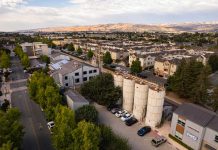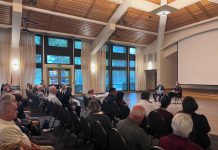In an election, if one wanted to win an office or pass a local measure or statewide proposition, given the local demographics, I’d expect supporters to reach out and campaign to primarily Latinos and other minority groups. I’d expect affordable housing funding reform supporters to reach out to renters, since they vastly outnumber landlords, parents of school children for school construction bonds, etc.
However, a recent study of statewide voting patterns of California reveals my expectations are misguided. Although the number of people eligible to vote in California has increased by 25 percent since 1990, voter registration has increased only 15 percent. As a result, says the Public Policy Institute of California, only 56 percent of the adult population is registered to vote. Smart campaigners target the following: white, ages 45 and older, homeowners, college graduates with household incomes of $60,000 or more. Meanwhile, Latinos, young adults, renters and people with lower incomes are less likely to vote.
Frequent voters and non-voters differ in background, but also attitudes on key issues: limits on government, government spending preferences, elected officials’ performance and ballot choices. While non-voters outnumber frequent voters, and their attitudes and preferences would dominate public opinion, the views of frequent voters prevail at the ballot box.
Likely voters have been shown to prefer limited government, lower taxes and fewer services. Sixty percent of surveyed Californians would like to see state government spend more on health and human services and public colleges and universities. However, only 50 percent of likely voters share that preference, in contrast to 70 percent of non-voters.
The report states, “As an example of who should benefit, Californians are keenly aware that lower-income areas have schools with fewer resources than other areas. More adults favor than oppose (49 to 44 percent) the policy of providing more funding for those schools even it means less for other areas. Although non-voters strongly hold this view (54 to 40 percent, it would be unlikely to prevail if put to an initiative vote: likely voters are ambivalent and deeply divided along party lines on providing funding for lower-income schools at the expense of other areas (47 to 47 percent).”
Every day, there is more news that moves people to become discouraged about politics. I can understand that Latinos, renters and low-income people feel disenfranchised from the democratic process and feel their voting doesn’t matter. Some people feel not voting sends a message about their discontent. With the way our system is set up, however, by opting out of voting, the only message decision makers are receiving is that they can continue to discount non-voters, so not voting seems pretty self-defeating, not empowering.
I know these pages have been inundated with columns urging residents to vote. Not only a necessary component of a functioning democracy, it’s a privilege, it’s an obligation, they’ve said; it’s a birthright, I add.
I’ve written in these pages before about being motivated by my cancer-filled father making it to the polls to cast his vote one last time. But I am driven more by the thought I hate having other people speak for me on decisions that affect my life. (Really, a straight Republican ticket another columnist advocated? No way!) Perhaps it’s because I grew up in an area where “west side” folks underestimated the people who lived there because of where we lived, the color of our skin, the origin of our native languages and the limited bank accounts. I sense a similar attitude from the rest of the region toward South County in general.
More and more, ever smaller groups of people – I repeat, the data shows they are mostly white, older, middle to upper income, homeowners and college graduates – are making the decisions that affect the lives of all of us. The report estimates that although California’s population will be only 33 percent white, the majority of voters will still be white in 2024.
While I understand the impulse not to vote – heck, sometimes, I want to shut everything off and move through life paying attention to only the most immediate and personal things like my kids, my friends and my garden – why non-voters would create this kind of self-imposed apartheid is beyond me.
If you haven’t voted in a while, you need to this time. If you haven’t registered to vote, you need to so you can in the future. What does it show your children and how does it bode for their future if you don’t?
Columnist Dina Campeau is a wife, mother of two teens and a resident of Morgan Hill. Her work for the last seven years has focused on affordable housing and homeless issues in Santa Clara County. Her column will be published each Friday. Reach her at dc******@*****er.net.







